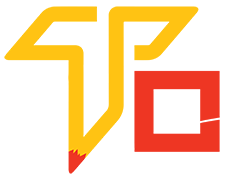Who this PHP full stack development course is for?
The PHP full stack developer course is designed for individuals who want to become proficient in both the front-end and back-end development aspects of web applications using the PHP programming language. This course is suitable for a variety of audiences, including: Beginners, Front-end Developers, Back-end Developers, Web Designers, Career Changers, Entrepreneurs and Small Business Owners, Self-Learners
Why take this PHP full stack course developement course?
Here are some reasons why you might consider taking such a course:
- Comprehensive Skill Set: Full stack development courses cover both front-end and back-end technologies, giving you a well-rounded skill set. You’ll learn how to create complete web applications from scratch, which can be valuable in a variety of job roles.
- High Demand: Full stack developers are in high demand in the tech industry. By gaining proficiency in both front-end and back-end development, you can increase your job prospects and potentially command a higher salary.
- Flexibility: Being a full stack developer allows you to work on different parts of a project, making you a versatile team member. You can switch between front-end and back-end tasks as needed, which can be especially beneficial in small teams or startup environments.
- Project Independence: With full stack skills, you can develop and deploy entire web applications on your own. This is advantageous if you’re an entrepreneur, a freelancer, or someone who wants to build personal projects without relying on multiple developers.
- Understanding the Full Workflow: Learning both sides of development gives you a better understanding of the entire web development process. You’ll be able to communicate more effectively with other team members and make informed decisions throughout a project’s lifecycle.
- Personal Growth: Mastering full stack development can be personally fulfilling. You’ll gain a sense of accomplishment from building complex applications and solving real-world problems.
- Freelancing and Remote Work: Full stack developers often have the flexibility to work remotely or as freelancers. This can provide you with the opportunity to choose where and when you work.
- Career Switching: If you’re considering a career change, a full stack development course can help you transition into the tech industry, which offers numerous opportunities and growth potential.
- Staying Relevant: The tech industry is always evolving, and full stack development skills can help you stay relevant by adapting to new technologies and trends.
- Building a Portfolio: As you complete projects during the course, you’ll build a portfolio showcasing your skills to potential employers or clients.
What you will learn?
The course curriculum may vary depending on the specific program and its duration, but here are the key topics you are likely to encounter:
Front-End Development:
- HTML and CSS: Building the structure and styling of web pages, including layout, typography, colors, and responsive design.
- JavaScript and jQuery: Adding interactivity and dynamic behavior to web pages, handling events, manipulating the DOM, and using jQuery for simplified JavaScript tasks.
- Responsive Web Design: Designing web pages that adapt and look good on various screen sizes and devices.
- Front-End Frameworks: Introduction to popular front-end frameworks like Bootstrap or Foundation for faster and more consistent UI development.
- Version Control: Using tools like Git to track and manage changes to your codebase collaboratively.
Back-End Development:
- PHP Fundamentals: Learning the basics of PHP programming, including variables, data types, control structures, functions, and object-oriented programming (OOP) concepts.
- Database Management: Working with databases using SQL, including creating, querying, and modifying databases and tables.
- PHP Frameworks: Introduction to PHP frameworks like Laravel, Symfony, or CodeIgniter to streamline back-end development and maintain code structure.
- API Development: Creating and consuming APIs (Application Programming Interfaces) to enable communication between different components of a web application.
- Authentication and Authorization: Implementing user authentication and authorization mechanisms to secure your web applications.
- Server-Side Scripting: Writing server-side scripts to handle form submissions, file uploads, and other server-related tasks.
Full Stack Integration:
- Creating Dynamic Web Applications: Integrating front-end and back-end components to create fully functional and interactive web applications.2.
- Session and Cookie Management: Managing user sessions and data persistence across different pages and sessions.
- Deployment and Hosting: Deploying your web application to a server, configuring hosting environments, and managing deployment pipelines.4.
- Security Best Practices: Learning about common security vulnerabilities and implementing measures to protect your web applications from threats.
- Performance Optimization: Techniques for optimizing the performance of your web applications, including caching, minimizing requests, and optimizing database queries.
- Testing and Debugging: Strategies for testing and debugging your code to ensure it works as intended and is free of errors.
- Project Management: Planning, organizing, and managing web development projects, including version control, collaboration, and project documentation.
SALARY & PACKAGES
Entry-Level PHP Developer: ₹2.5 to ₹4.5 lakhs per annum
Mid-Level PHP Developer: ₹4.5 to ₹8 lakhs per annum
Senior PHP Developer: ₹8 to ₹15 lakhs per annum
Lead PHP Developer: ₹15 to ₹25 lakhs per annum
Technical Architect (PHP): ₹25 lakhs and above per annum
JOBS & PROFILES
There are many job profiles are avaliable in varanasi & all over India. Such Job Profiles name is – PHP Developer, PHP Web Developer, Backend PHP Developer, Full Stack PHP Developer, PHP UI/UX Developer, PHP Technical Lead, etc.

Charges & duration of PHP full stack development
Duration : 6 month
Charges : 6,000/-
View all Fee & duration of separate course frontenddevevelopment, backend development, database
PHP full stack course syllabus details
- Understanding the basics of web development
- Introduction to PHP and its role in web development
- Setting up a local development environment
- HTML and CSS fundamentals
- Responsive web design and media queries
- Introduction to JavaScript and jQuery
- DOM manipulation and event handling
- Variables, data types, and operators
- Control structures and loops
- Functions and scope
- Introduction to object-oriented programming (OOP) in PHP
- Setting up a database using MySQL or another relational database system
- CRUD operations (Create, Read, Update, Delete) with PHP and SQL
- Introduction to PHP frameworks (e.g., Laravel, Symfony, CodeIgniter)
- Authentication and authorization systems
- Working with APIs and consuming external data
- File handling and uploads
- Server-side scripting and form processing
- Introduction to front-end frameworks (e.g., Bootstrap, Foundation)
- Building responsive and dynamic UI components
- Version control with Git and GitHub/GitLab
- Integrating front-end and back-end components
- Developing a complete web application from scratch
- Implementing user authentication and sessions
- Deploying applications to a live server
- Configuring hosting environments and domain management
- Performance optimization techniques (caching, minification, etc.)
- Identifying and mitigating common security vulnerabilities
- Implementing secure coding practices
- Handling sensitive data and protecting against attacks
- Collaborative development using version control
- Agile project management methodologies
- Writing project documentation and maintaining codebase
Related- frontend development, backend development, database
